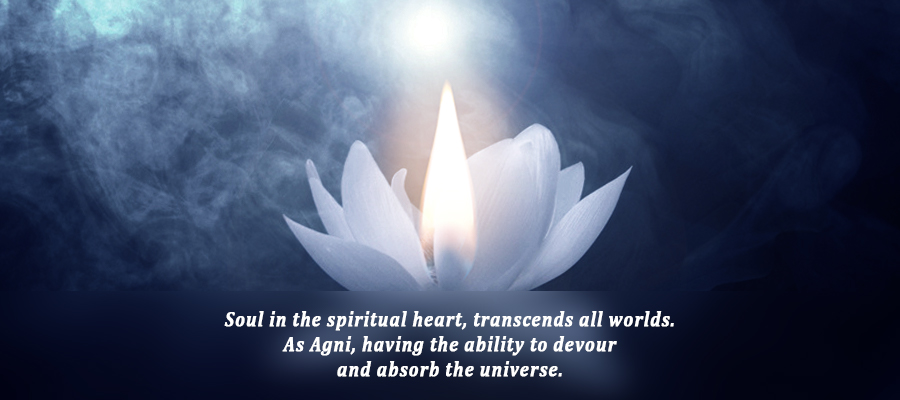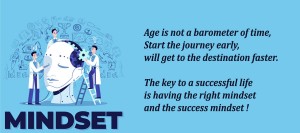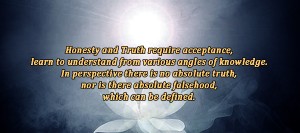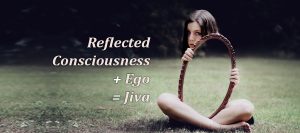Self Inquiry Method
Many different types of meditation are practiced throughout the world. The Vedantic tradition of India has counterparts for most of these, from meditation on deities to that on the various aspects of consciousness. Of these different meditation techniques Self-inquiry (Atma-vichara), a self-introspection approach, is generally considered to be the most significant.
Self-inquiry is a process of meditation that involves tracing the root of thought to its origin in the heart. It shows us how to take our ego-consciousness back to the Divine I am at the core of our being in which all sense of separate self disappears. Self-inquiry is the most important approach of the Yoga of Knowledge (Jnana Yoga), which is traditionally regarded as the highest of the Yogas.
Self-inquiry is the culminating practice through which Self-realization – the realization of our true nature beyond mind and body – can be achieved. It is emphasized in the entire Vedantic tradition since the Upanishads and the Bhagavad Gita. Many texts of Advaita or non-dualistic Vedanta describe it in detail, particularly the works of Shankaracharya, but also Ashtavakra Samhita, Avadhuta Gita, Yoga Vasishta and Adhyatma Ramayana.
In modern times Self-inquiry is known primarily through Ramana Maharshi (1978-1950), the great sage of South India, who emphasized it as his main teaching. Ramana was a towering figure, a “spiritual Hercules” as Sri Aurobindo described him, a sage who achieved Self-realization after a mere twenty minute spontaneous meditation when he was but a lad of sixteen. Historically Self-inquiry has been a common practice among Swamis of the Vedantic orders. There remains a strong Self-inquiry tradition in India today, particularly among the Swamis of the south. Through the world-wide popularity of Ramana Maharshi’s teachings people of all backgrounds have begun to attempt this practice.
The process of Self-inquiry is so simple that it can be explained in a few words. One traces the root of one’s thoughts back to the I-thought, from which all other thoughts arise and diverge. This is initiated by the question “Who am I?” or similar questions about one’s true identity.
All our thoughts are based directly or indirectly on the thought the self. Our thoughts consist of two components: a subjective factor – I, me or mine – and an objective factor – a state, condition or object with which we are involved – our own body and mind or external circumstances like our relationships, possessions or activities. We get caught in the object portion and fail to look within to see our true nature apart from these external conditioning influences.
The result is that the pure I or I-in-itself remains unknown to us. All that we call ourselves is but a conglomerate “I am this” or “this is mine,” with the subject confused with an object. Our self becomes a self-image, a subject in the guise of an object, in which our intrinsic nature is lost, along with our dignity as a conscious being. We become a mere name and form, a commodity in the outer world to be used and exploited. Self-inquiry consists of detaching from the object portion to discover the pure Subject, so that we can become liberated from all external limitations.
The truth is that we don’t know who we really are. What we call our Self is only some thought, emotion or sensation that we are temporarily identified with. We are trapped in ideas that we are happy or sad, good or bad, foolish or wise, but do not know the Self who experiences these changing qualities. Our lives are shrouded in ignorance about our true nature, starting with our bodily identity, the idea that we are no more than this changing physical vesture. As long as we don’t question this process we must come to sorrow.
However, Self-inquiry does not mean merely to repeat the question Who am I? over and over again in our minds. This becomes an exercise in mental activity that breeds fatigue. It means searching for our true Self in all that we do, which is more a matter of observation than analysis, looking to the Self that is behind our various activities of breathing, eating, feeling, thinking and acting. Other questions can be helpful like “What am I?” or “Who is the experiencer?,” or “Who is the seer?.” Any type of self-introspection, in which we try to look dispassionately at who we are and the results of our actions, moves us in this direction.
Self-inquiry requires that we have a fundamental doubt about who we are that rejects all outer identifications. It is as if one had amnesia and didn’t know who one was and had to give full attention to the matter before anything else could be done. Self-inquiry is not an intellectual or a psychological inquiry but an inquiry with one’s entire energy and attention. It requires a full and one-pointed concentration, not interrupted by the intrusion of other thoughts.
True Self-inquiry is not just questioning the limitation of our outer identity, like our family, political or religious affiliations – whether one is a wife, a father, a Christian, Hindu or communist. It questions our internal identity as an embodied being and as a mind. It does not stop short with some general identity as a human, cosmic or spiritual being but rejects any formation of thought. It directs us back to the pure “I” that has no identity with any form of objectivity, physical or mentalm, that is in the world but not of it. The true Self is not only beyond human distinctions, it is beyond all conceivable divisions of time and space, name and form, birth and death. It is beyond all experience as the experiencer or observer of all.
The thought current naturally moves back to the Self to the extent that we do not preoccupy our minds with outside stimulation. The problem is that the senses present so many distractions that it is difficult to look within. Self-inquiry means to constantly question and try to reverse this process of extroversion, holding our awareness in the heart.
Self-inquiry leads us ultimately to the experience of the Absolute in which the phenomenal world becomes little more than a mirage of the mind and senses. It goes far beyond the discovery of some greater self, human or creative potential. It is called the direct way to the Absolute.





